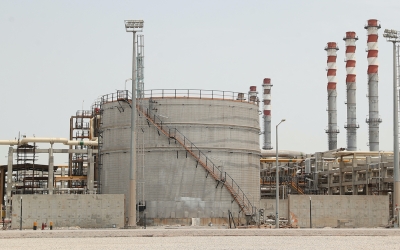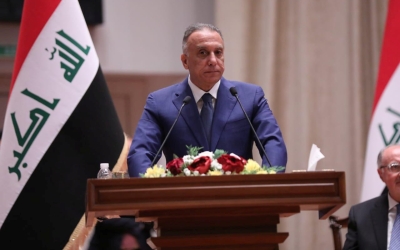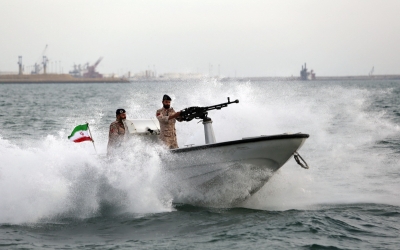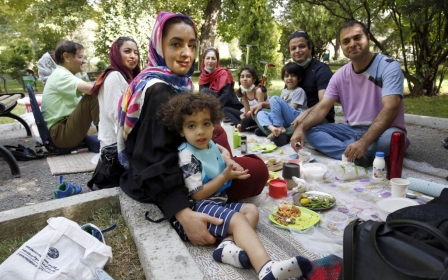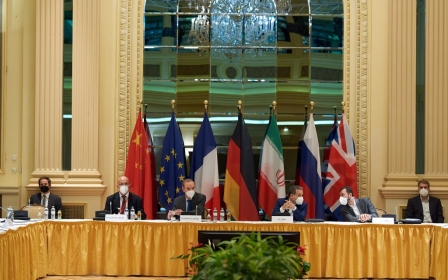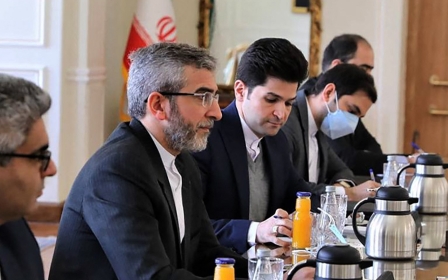Iranian press review: Tehran entices buyers with cheap petrol to boost exports
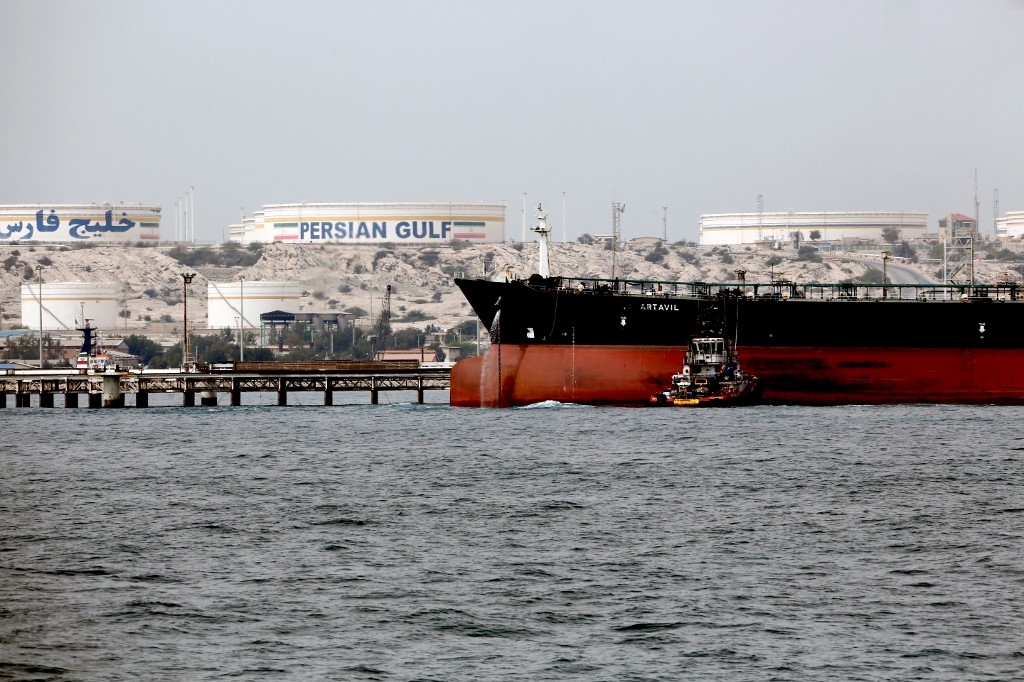
Iran slashes petrol price to attract buyers
Iran has been selling petrol at a heavily discounted rate to help boost its petrochemical export revenues, as the country continues to feel the squeeze under the United States’ “extreme pressure” policy, the Shargh daily reported.
Since its withdrawal from the nuclear deal in 2018, Washington has imposed severe sanctions on Iran’s export of oil, gas and petrochemical products, as well as its banking system and many other economic sectors.
However, in recent weeks Iranian authorities say the oil-rich country has seen an increase in income from oil and gas exports, despite the US sanctions adhered to by the international community.
One of the main reasons for the growing revenue, according to the daily, is the significant discount that Tehran offers to parties who are willing defy the sanctions and purchase Iran’s products.
“The data from Iran’s Customs Administration indicates that last year [on average] Iran had exported every litre of petrol for $0.38,” Shargh wrote.
“According to reports from the OPEC, the average price of one litre of Iran’s crude oil in the same period was about $0.49. These numbers show that Iran suffered a huge loss and sold the petrol cheaper than crude oil,” the daily added.
In some months, the production costs exceeded what Iran had received for the exported petrol, the Iranian Parliament Commission on Energy was quoted by the daily as saying.
Oil exports from Iran, which sits on the world's fourth-largest reserves of crude, plummeted from a peak of 2.8m barrels per day in 2018 to as low as 200,000 bpd following the US withdrawal from the nuclear deal and the imposition of sanctions.
Although Iran does not divulge exact figures on oil sales, an Iranian oil official said the figure was currently around 1.5m bpd, with most going to China at a big discount Iranian authorities have declined to reveal.
Global crude prices remain high, with Brent crude reaching $139 a barrel in March, its highest since 2008, after Russia's invasion of Ukraine exacerbated supply concerns.
While Tehran’s ultimate aim is still to resurrect the nuclear deal and so have sanctions lifted, some Iranian officials said soaring oil prices had opened a window of opportunity for Iran by increasing revenues, giving the economy months of breathing space.
"If the talks fail it will not be the end of the world," said an Iranian official who spoke to Reuters, adding that the fact Iran's economy was not now so reliant on a revival of the deal would provide strong leverage for its negotiators if or when the talks resumed.
Iraq to pay massive debt to Iran
Iranian officials announced that Iraq would soon begin paying back its debt to Tehran, estimated at around $10bn, which was blocked due to sanctions on Iran’s banking system, the state-run news agency IRNA reported.
The Iraqi government owes billions of dollars to both Iranian private and public companies, according to the head of the Iran-Iraq Joint Room of Commerce, Yahya Al-e Ishagh.
“In the coming days, the normal process of paying Iran’s demands will begin, based on agreements between the two countries,” Al-e Ishagh was quoted as saying by IRNA on Saturday.
“Iraq owes $1bn to the public sector, and with the solutions that Iran’s central bank has proposed, this debt will be paid soon,” he said, without elaborating if that money would be transferred to Iran or if Baghdad would export goods to its neighbour.
In addition, the Iraqi government owed $9bn to Iranian private companies, said the official.
Iran is Iraq’s leading gas and electricity supplier, but it cannot receive the money for its exports due to international sanctions imposed by western powers since 2012, which cut off Iranian banks' access to the international money transfer system.
Tehran has called on the US to lift some sanctions on Iran to show its goodwill towards reviving the international nuclear agreement.
"On multiple occasions, we have told Americans they should bring forward one or two practical points prior to any agreement, for example by releasing some of Iran's assets withheld in foreign banks," Iran's foreign minister, Hossein Amirabdollahian, said last month.
In April, officials in Tehran said that Iran’s blocked money in South Korea would be released based on bilateral agreements; however, so far, Seoul has not transferred any money or goods to Iran.
Stolen Iranian phones smuggled to Afghanistan
One in eight mobile phones stolen in the Iranian capital have been smuggled to Afghanistan, as phone theft becomes an increasingly lucrative business in the country, the Arman daily reported.
About 160 mobile phones are reported stolen in Tehran every day, said the daily. The actual number of thefts is likely much higher, as about half the robberies go unreported.
“Tehran is one of those cities where you need a lot of courage to use your mobile phone without a hands-free device on the streets… The worrying problem is that, despite police precautionary measures, if your mobile phone is stolen, you would have very little hope of finding it,” the Arman wrote.
Many of the stolen phones find their way to Afghanistan, where Iranian devices can be used easily as no special antenna or SIM card registry is required for operation there.
The daily’s report said that about 7,000 thieves and snatchers are arrested in Tehran every year. In one case, police found stolen mobile phones hidden inside toy dolls to be trafficked to Afghanistan.
“The remaining question is, how many thieves does Tehran have with a population of 13 million?,” the daily asked.
A nation of ‘unhappy’ people
Over the the last decade, Iranians have become some of the "unhappiest" people in the world, according to national and global reports, a veteran journalist has said.
Iran ranked below countries such as Iraq and Libya, despite being considered an upper-middle-income country based on its gross domestic product per capita, according to Banafsheh Samgis.
“During the past 10 years, Iranians - regardless of their income and the governments’ economic benefits - were unhappy and ranked at the bottom of the world happiness index,” Samgis wrote in an opinion piece for the Etemad daily.
The journalist formed her opinion based on the 2022 World Happiness Report, which is part of an international survey by the United Nations Sustainable Development Strategies Network, as well as findings from a national study by researchers from the Jihad University Health Sciences Research Institute.
Without directly explaining the reasons behind Iran’s low ranking, the journalist recommended her audience read the original UN report on the internet and learn about other factors in measuring nations’ happiness.
“Physical wellbeing, social support, freedom to make life choices, and people’s awareness of corruption among the officials are other criteria to evaluate nations’ happiness,” she added.
“By analysing these factors on the World Happiness website, one can understand the reasons for Iran’s low ranking,” Samgis wrote.
*The Iranian press review is a digest of reports that are not independently verified as accurate by Middle East Eye
Middle East Eye delivers independent and unrivalled coverage and analysis of the Middle East, North Africa and beyond. To learn more about republishing this content and the associated fees, please fill out this form. More about MEE can be found here.


